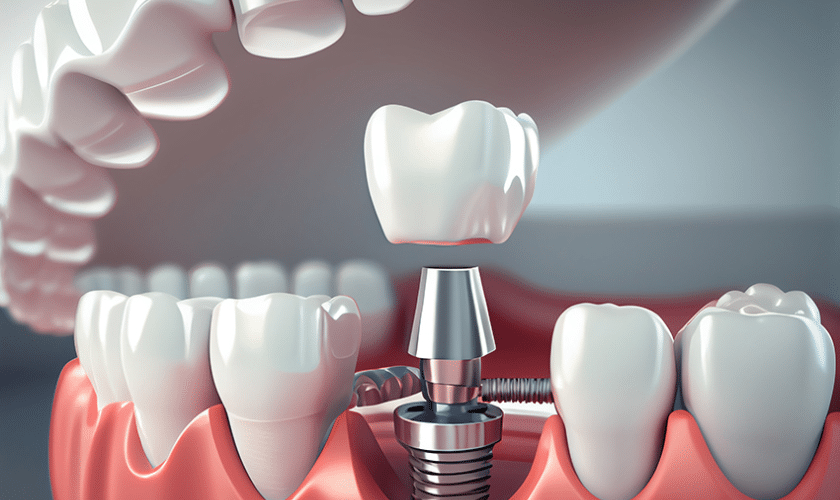Are Dental Implant Surgery Painful?

Imagine regaining the confidence to flash a radiant smile, free from the worries of missing teeth. Dental implant surgery offers precisely that—a chance to restore both aesthetics and functionality to your mouth. However, the prospect of surgery often evokes fear, primarily concerning pain. In this comprehensive guide, we debunk the myths surrounding dental implant surgery pain, offering reassurance and insights into what to expect from this transformative procedure.
Dispelling the Myths:
Myth #1: Dental Implant Surgery is Excruciatingly Painful
Contrary to popular belief, dental implant surgery is not synonymous with excruciating pain. Thanks to advancements in anesthesia and surgical techniques, discomfort during the procedure is minimal. Most patients report feeling only mild pressure and vibrations during the surgery itself. Moreover, your oral surgeon will ensure you are adequately numbed, further minimizing any potential discomfort.
Myth #2: Recovery from Dental Implant Surgery is Agonizing
While some discomfort is normal during the recovery period, it is typically manageable with over-the-counter pain medications prescribed by your dentist. Any post-operative pain is often comparable to that of a tooth extraction and tends to subside within a few days. Following your dentist’s post-operative care instructions diligently can significantly expedite the healing process and alleviate discomfort.
Understanding the Procedure:
To better understand why dental implant surgery isn’t as painful as commonly perceived, let’s delve into the procedure itself. Dental implant surgery involves three main stages: placement of the implant, osseointegration, and crown placement.
During the initial stage, the implant—a small titanium screw—is surgically inserted into the jawbone. This process is performed under local anesthesia, ensuring you feel little to no pain. Once the implant is in place, the jawbone gradually fuses with the implant through a process called osseointegration. While this may sound intimidating, patients typically experience minimal discomfort during this phase.
Finally, once osseointegration is complete, a custom-made crown is attached to the implant, effectively restoring the appearance and functionality of the missing tooth. This last step is virtually painless and is akin to having a dental restoration placed.
Managing Pain and Discomfort:
While dental implant surgery itself is not overly painful, it’s natural to experience some discomfort during the recovery period. To help manage pain and promote healing, consider the following tips:
- Follow Your Dentist’s Instructions: Your dentist will provide detailed post-operative care instructions. Following these guidelines diligently can significantly reduce discomfort and promote a speedy recovery.
- Take Pain Medication as Prescribed: Over-the-counter pain relievers such as ibuprofen or acetaminophen can help alleviate any discomfort. Be sure to take them as directed by your dentist.
- Apply Ice Packs: Applying ice packs to the affected area can help reduce swelling and numb the area, providing relief from pain.
- Stick to Soft Foods: In the days following surgery, stick to a soft diet to avoid placing unnecessary strain on the surgical site.
In conclusion, dental implant surgery is not as painful as it is often perceived to be. Thanks to advancements in anesthesia and surgical techniques, discomfort during the procedure is minimal, and any post-operative pain is typically manageable with over-the-counter pain medications. By understanding the procedure and following your dentist’s post-operative care instructions, you can undergo dental implant surgery with confidence, knowing that the end result—a restored, functional smile—is well worth any temporary discomfort. Don’t let fear hold you back from achieving the smile of your dreams.
Recent Posts

Why Won’t My Teeth Stay White? Dr. Maconi on Maintenance for Havertown Residents

What Happens if You Delay Filling a Cavity? Dr. Maconi on Preventing Root Canals

What Home Care Tips Can Help Relieve TMD Discomfort in Havertown?

Minimizing Sensitivity: Why Professional Teeth Whitening Treatment is Safer Than DIY Kits


